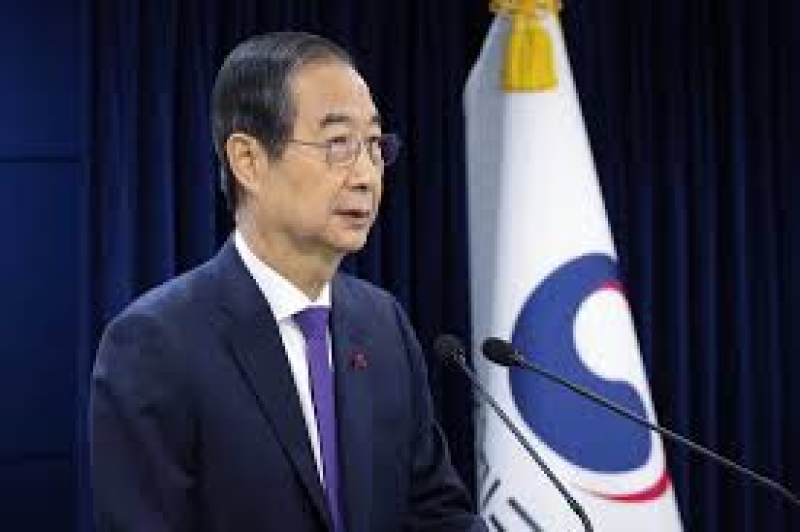- Lab Tests Find 67% Adulteration in Branded Milk Powder |
- DNCC Sets New House Rent Rules, Eases Burden for Tenants |
- RAB Officer Killed, Three Injured in Sitakunda Attack |
- Bangladesh Plans Padma Barrage, First Phase at Tk34,608cr |
- US Expands Trump’s Gaza Peace Board, Invites More States |
South Korea's Acting President Han Impeached Amid Crisis

South Korea's parliament impeached acting President Han Duck-Soo on Friday, deepening the country's political crisis. This follows less than two weeks after President Yoon Suk Yeol was suspended over his short-lived martial law declaration on December 3, which triggered widespread unrest.
Han, who stepped in as acting president after Yoon's impeachment on December 14, now faces a Constitutional Court review. Finance Minister Choi Sang-Mok, who took over Han's duties, convened the National Security Council and met with key officials, including military leaders, vowing to stabilize the situation.
The imposition of martial law and the subsequent political upheaval sent shockwaves through South Korea's economy and raised concerns among international allies. As the country faces economic instability, the Korean won fell to a 15-year low ahead of the impeachment vote.
Han’s impeachment came after he refused to appoint three justices to the Constitutional Court, citing the limitations of his acting role. The opposition-led motion passed with 192 votes, while the ruling People Power Party (PPP) boycotted the vote, arguing it was invalid.
Meanwhile, the Constitutional Court held its first hearing on whether to reinstate or permanently remove Yoon from office. The court has 180 days to make a decision, and Yoon’s lawyers plan to challenge the proceedings. If Yoon is ousted, a new presidential election will be held within 60 days.
Yoon's controversial martial law decree on December 3—aimed at resolving political deadlock and suppressing "anti-state forces"—was quickly rescinded after lawmakers voted against it. The crisis has been likened to South Korea’s worst political turmoil since 1987, when protests led to democratic reforms.
In the latest development, prosecutors indicted former Defence Minister Kim Yong-hyun for insurrection, marking the first trial of a government official linked to the martial law attempt.

